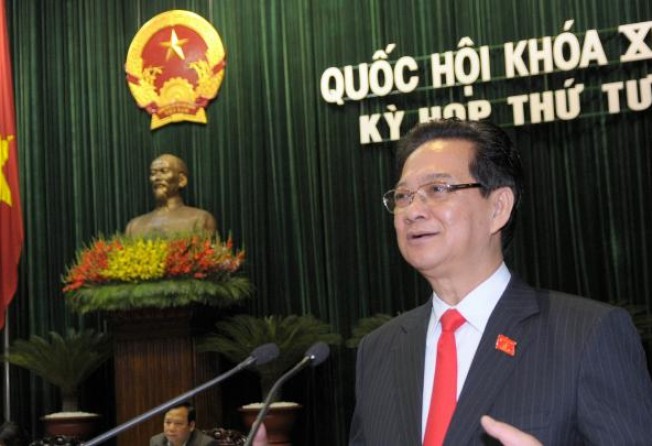Time to quit, Vietnamese lawmaker tells Prime Minister Dung
Show of dissent, sparked by Vietnam's economic woes, wins support from online community

A bold Vietnamese lawmaker has suggested to the prime minister that it might be time for him to step down. The rare show of public dissent in the one-party-ruled state came yesterday in the national assembly.
Duong Trung Quoc told Prime Minister Nguyen Tan Dung that it was "time to take responsibility, not just apologise" for the massive losses accrued by state-owned enterprises.
Quoc, an outspoken historian and one of fewer than 10 per cent of lawmakers who do not belong to the Communist Party, urged Dung to "start the government's progress towards a resignation culture".
Quoc's comments attracted support on Vietnamese-language online forums and blogs, which are hugely popular in the heavily censored country.
A second lawmaker, Nguyen Ba Thuyen, said Dung's failure to set out a plan to overcome the country's economic woes had damaged public trust in the Communist leadership.
The growing pressure comes as Vietnam grapples with slowing economic growth, resurgent inflation, falling foreign direct investment and rising fears about toxic debts in the fragile banking system.
A relaxed Dung responded by saying the Communist Party had assigned him the top job. Last month, the party's central committee met and chose not to sanction him.
But in an attempt to deflect increasing criticism, the party issued a rare self-rebuke and Dung apologised for corruption, inefficiencies and major losses at state-run giants such as shipbuilder Vinashin.
"The party assigned me to continue to be the prime minister," he said.
"I did not lobby, I did not ask for, nor refuse, any assignment given by the party and state."
Dung, a former central bank governor whose second five-year term was approved in July 2011, is said to have become the country's most powerful prime minister.
The National Assembly, however, has also gradually become more outspoken. In 2010 a lawmaker called in vain for Dung to face a confidence vote after the near-collapse of Vinashin.
Agence France-Presse, Associated Press